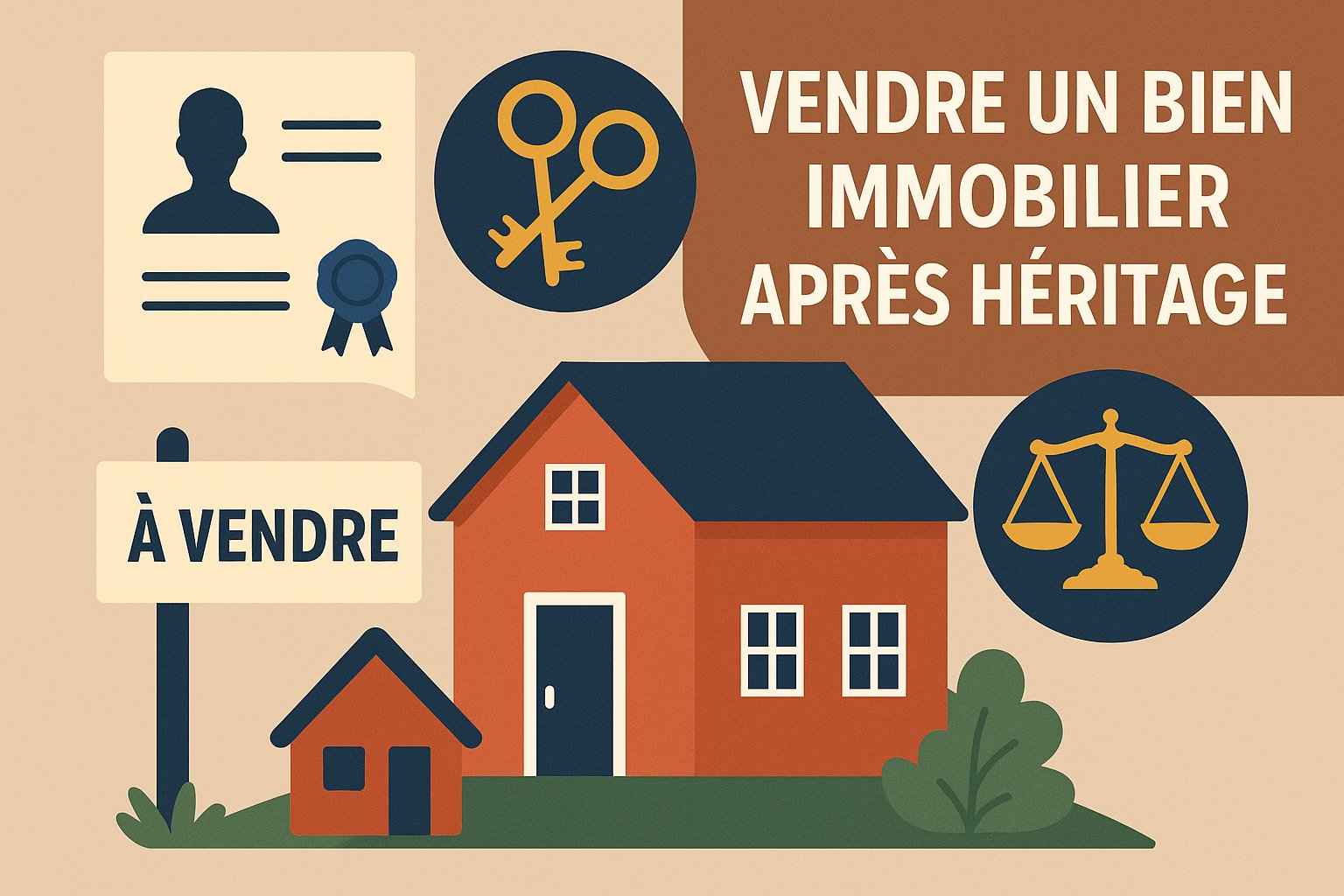2025-07-08
Selling a property after inheritance: key steps and advice
Everything you need to know about selling an inherited property.

Selling an inherited property can be complex, especially in cases of joint ownership (indivision). However, with proper preparation and the right support, it is possible to carry out the sale calmly and efficiently.
With BARNES Bordeaux, discover the steps, costs to anticipate, and solutions to enhance and sell your property under the best conditions.
Key Takeaways
- Selling a property after inheritance requires following a legal procedure overseen by a notary.
- In cases of joint ownership, the agreement of two-thirds of the heirs is enough to sell the property.
- Costs must be anticipated: inheritance taxes, notary fees, possible partition costs.
- A clean, empty, and well-presented property sells faster and under better conditions.
- A reliable valuation, carried out by a professional, is essential to set the right price.
What Are the Steps to Sell an Inherited Property?
Selling a property after inheritance requires following a precise legal procedure.
Here are the main steps to follow:
- Search for a will: the notary questions the family and consults the central register to verify whether any testamentary dispositions exist.
- Opening of the succession: the notary officially reads the will and draws up a formal record.
- Drafting of the deed of notoriety: this document identifies the heirs and specifies their relationship to the deceased.
- Valuation of the estate: the notary and heirs establish an inventory of the assets to be transferred.
- Decision on acceptance of the inheritance: the heir can accept (fully or partially) or renounce, within a period of 4 months.
- Certificate of ownership: this document confirms the transfer of the property to the heir.
- Declaration of inheritance: it must be filed within 6 months, along with payment of inheritance taxes (with possible installment plans).
- Sale of the property: once officially the owner, the heir can proceed with the sale.
Sole Heir or Joint Ownership: How to Sell an Inherited Property?
The number of heirs greatly impacts the procedure for selling an inherited property. The process is simpler for a sole heir but can become more complicated in cases of joint ownership.
1. Sale by a Sole Heir
When a single person inherits the property, the sale is simple and fast. The heir officially becomes the owner once the notary has issued the ownership certificate. They can then freely put the property on the market. However, they must pay inheritance taxes, calculated according to the property’s value and their degree of kinship with the deceased.
2. Sale in Joint Ownership Between Several Heirs
In cases of shared inheritance, the property is held in joint ownership (indivision). Each heir holds a share, and all must in principle agree to sell. In the event of disagreement, a two-thirds majority has been sufficient since the 2007 reform.
An heir blocking the sale without justification may receive a formal notice. If they continue not to respond, a judge can intervene to resolve the situation, and the court may order a forced sale at auction or a division of shares.
What Costs Should Be Anticipated When Selling an Inherited Property?
Selling a property from an inheritance involves various costs. These vary depending on the heirs’ situation, the type of property, and legal obligations.
1. Inheritance Taxes and Notary Fees
All heirs must pay inheritance taxes. The amount depends on the value of the estate received and the degree of kinship with the deceased. The more distant the relationship, the higher the taxation. Added to this are notary fees related to handling the succession, especially when real estate is involved. These fees are regulated by law and cover administrative, legal, and tax formalities.
2. Certificate of Ownership: A Mandatory Step
This notarial document officially certifies that the heir becomes the property’s owner. Its cost includes several items: notary’s fees, property registration tax, mortgage statement, real estate security contribution, etc. These costs are calculated based on a scale set by the Commercial Code. The certificate is indispensable before any sale, as it formalizes the transfer of ownership.
3. Costs Related to Partition Between Heirs
When several heirs wish to end joint ownership, the partition must be formalized by a notary. This act allows each heir to receive their share in a clear and legally recognized manner.
Note: this partition generates costs: proportional notary fees based on the property’s value, property registration tax, registration fees (2.5%), and a real estate security contribution (0.10%). These expenses must be anticipated before any resale of the property.
Why Choose BARNES Bordeaux to Sell an Inherited Property?
Selling a property after inheritance requires rigor, local expertise, and tailored support.
At BARNES Bordeaux, we understand the emotional and legal specificities linked to this type of sale. Our specialized consultants help you accurately assess the value of your property, taking into account Bordeaux’s market reality, location (city center, Chartrons, Caudéran…), and features.
Thanks to our in-depth knowledge of prestige real estate and a tailored sales strategy, we maximize your chances of selling quickly and at the best price. Whether you are a sole heir or in joint ownership, our team assists you at every stage, with discretion, efficiency, and care.
Are you unsure about the best way to sell an inherited property in Bordeaux?
Do you need help getting an accurate, objective valuation? Are you worried about mishandling the legal and tax aspects of the succession?
Don’t face these challenges alone — contact our team today for full support from valuation to closing!


